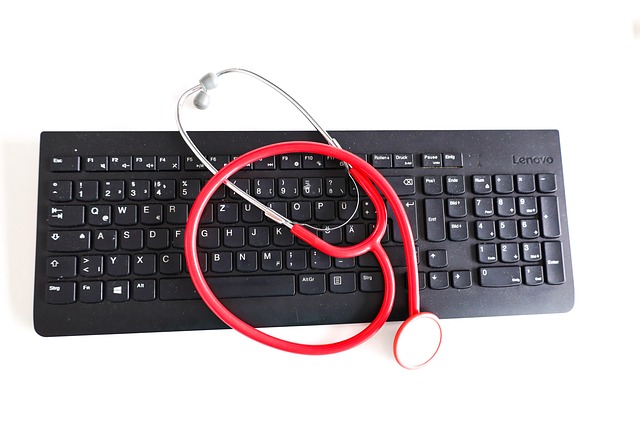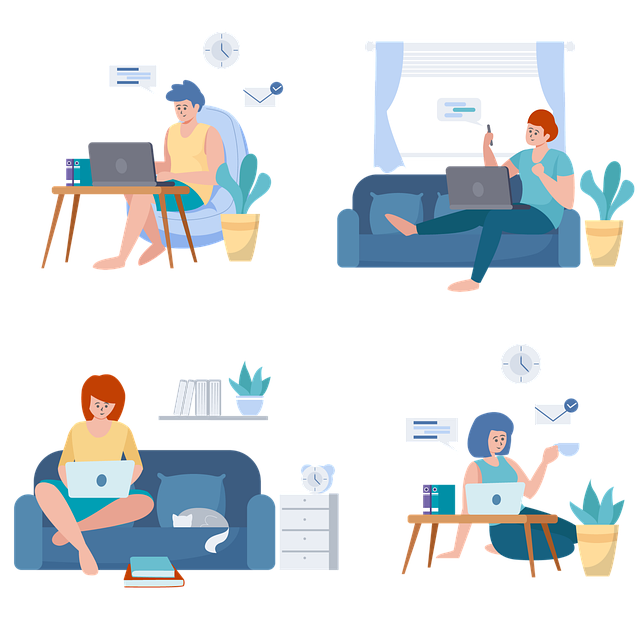Semaglutide, an injectable medication, transforms diabetes treatment through mimicking GLP-1 hormones, effectively managing blood sugar levels and offering continuous glucose control with regular online consultations. This therapy improves metabolic health, promotes weight loss, and reduces complications, making it a powerful tool for type 2 diabetes management. Semaglutide online consultation platforms revolutionize remote monitoring, enabling healthcare providers to assess patient health, adjust treatments, and offer guidance through secure video conferencing, eliminating geographical barriers and enhancing medication adherence. These tools allow personalized care at distance, with continuous data gathering for trend identification and early issue detection, empowering patients to actively participate in their care. Setting realistic goals and choosing appropriate digital platforms are crucial for successful remote monitoring, while strategies to foster patient compliance and engagement ensure consistent treatment adherence. The future of healthcare looks promising with semaglutide online consultation, aiming to make technology accessible, affordable, and secure for all patients, revolutionizing chronic condition management through timely interventions and personalized care.
The rise of remote healthcare has prompted innovative solutions for continuous monitoring, particularly with semaglutide, a versatile medication. This article explores how online consultations and digital tools empower patients and healthcare providers through real-time health tracking. We delve into the benefits, from personalized treatment adjustments to improved patient compliance and engagement. Discover how semaglutide remote health management is transforming clinical practice, addressing challenges, and setting the stage for future trends in this dynamic field.
Understanding Semaglutide and its Benefits

Semaglutide is a groundbreaking medication that has transformed diabetes management, offering significant advantages for those with type 2 diabetes. This injectable drug mimics a natural hormone called GLP-1 (glucagon-like peptide-1), which stimulates insulin production and suppresses glucagon release in a glucose-dependent manner. As a result, it helps lower blood sugar levels and improve overall metabolic control.
One of the key benefits of semaglutide is its ability to provide continuous glucose control. Through regular online consultation with healthcare professionals, patients can monitor their health progress effectively. This ongoing assessment allows for prompt adjustments in medication dosages or treatment plans, ensuring optimal blood sugar management. Additionally, semaglutide has been shown to promote weight loss, reduce the risk of diabetes-related complications, and improve overall cardiovascular health, making it a highly effective and versatile therapy option.
The Role of Online Consultations in Remote Monitoring

In the realm of continuous remote monitoring, especially for chronic conditions like diabetes, online consultations play a pivotal role. Semaglutide online consultation, for instance, allows healthcare providers to remotely assess patient health, adjust treatment plans, and offer real-time guidance. This digital approach is transforming care delivery by eliminating geographical barriers and enabling frequent, convenient check-ins.
Through secure video conferencing platforms, patients can discuss their symptoms, share glucose readings, and receive personalized advice. Such interactions facilitate timely interventions, enhancing medication adherence and improving overall health outcomes. Additionally, online consultations free up clinic resources, making healthcare more accessible and efficient without compromising quality of care.
Advantages of Continuous Health Progress Tracking

Continuous health progress tracking offers numerous advantages, especially for individuals managing chronic conditions or undergoing weight loss journeys. With advancements in technology, remote monitoring has become a game-changer, allowing healthcare providers to offer personalized care at a distance. This approach is particularly beneficial for patients who prefer the convenience of virtual consultations, such as semaglutide online consultation services, eliminating the need for frequent in-person visits.
By continuously gathering data on vital signs and health indicators, healthcare professionals can identify trends and make informed decisions. This proactive monitoring enables early detection of potential issues, allowing for timely interventions. Moreover, it provides patients with a deeper understanding of their bodies, empowering them to actively participate in their care and make necessary adjustments to their treatments or lifestyle choices.
Setting Realistic Goals for Effective Monitoring

Setting realistic goals is a cornerstone of effective remote health monitoring, especially when utilizing tools like semaglutide through online consultations. Patients and healthcare providers must work together to establish achievable milestones that consider individual health statuses, lifestyle, and circumstances. Unrealistic expectations can lead to disappointment and disengagement, undermining the very purpose of continuous monitoring.
For instance, a patient undergoing weight management with semaglutide should set specific, measurable goals tailored to their baseline metrics. A reasonable target might be a gradual 0.5-1 kg loss per week, rather than aiming for drastic, immediate changes. Regular online consultations can serve as touchpoints to reassess progress, adjust treatment plans if needed, and celebrate small victories along the patient’s personalized journey.
Choosing the Right Digital Tools for Remote Monitoring

Choosing the right digital tools is paramount for effective remote monitoring, especially when managing complex health conditions like diabetes. With the rise of semaglutide and other medication regimens requiring regular check-ins, telemedicine platforms have become indispensable. These online consultation services allow patients to connect with healthcare providers from the comfort of their homes, ensuring convenient and timely care.
When selecting a remote monitoring system, consider features that facilitate secure data sharing, user-friendly interfaces for both patients and healthcare professionals, and integration capabilities with existing medical records systems. Additionally, platforms offering real-time tracking of vital signs, glucose levels, and medication adherence can significantly enhance patient outcomes, making it easier to manage chronic conditions remotely.
Ensuring Patient Compliance and Engagement

Ensuring patient compliance and engagement is a critical aspect of successful remote health monitoring, especially for treatments that involve complex medication regimens. In the case of semaglutide online consultation, where patients receive ongoing support and guidance from healthcare professionals remotely, it’s essential to implement strategies that foster adherence. Patients must not only understand their treatment plan but also feel motivated to stick to it consistently.
One effective approach is to utilize technology to facilitate patient-provider communication. Regular virtual check-ins can address any concerns or questions patients might have, ensuring they stay on track. Additionally, digital tools and apps designed for diabetes management (in the context of semaglutide use) can empower patients by providing easy access to their treatment data, enabling them to actively participate in their healthcare journey.
Addressing Challenges and Ethical Considerations

The continuous remote monitoring of health progress, especially in managing chronic conditions, presents a promising future for healthcare. However, several challenges and ethical considerations must be addressed to ensure its successful implementation. One significant hurdle is providing accessible and affordable solutions for all patients, particularly those in remote areas or with limited digital literacy.
Additionally, maintaining patient privacy and data security is paramount when utilizing technologies like semaglutide online consultation. Healthcare providers must adhere to strict ethical guidelines and ensure informed consent processes are in place to protect sensitive information. Balancing the benefits of remote monitoring with potential risks requires a delicate approach to foster trust and encourage patient participation in their healthcare journey.
Integrating Continuous Monitoring into Clinical Practice

Integrating continuous monitoring technologies, such as those utilizing semaglutide via online consultation platforms, into clinical practice offers a transformative approach to patient care. This shift enables healthcare providers to gain unprecedented insights into their patients’ health progress between in-person visits. By leveraging digital tools, clinicians can now remotely monitor vital signs, treatment adherence, and overall well-being, fostering a more proactive and personalized care experience.
Through semaglutide online consultation services, patients with chronic conditions like diabetes can have continuous support. These platforms facilitate regular check-ins, allowing healthcare professionals to promptly address concerns, adjust treatments as needed, and provide real-time guidance. This innovative practice not only enhances patient engagement but also improves clinical outcomes by enabling timely interventions and better management of long-term health issues.
Future Trends in Semaglutide Remote Health Management

The future of Semaglutide remote health management looks promising, with technology paving the way for more efficient and accessible patient care. One key trend is the integration of semaglutide online consultation platforms, enabling healthcare professionals to remotely monitor patients’ progress and provide timely interventions. These digital tools offer a seamless experience, allowing patients to discuss their treatment plans, share symptoms, and receive personalized advice without physical visits.
With advancements in telemedicine, patients can expect more interactive and engaging remote health management. This includes virtual reality-based assessments, mobile applications with advanced analytics, and artificial intelligence algorithms that predict and prevent potential health issues. Such innovations will enhance patient adherence to treatment protocols and improve overall health outcomes, especially for individuals managing chronic conditions like diabetes.
